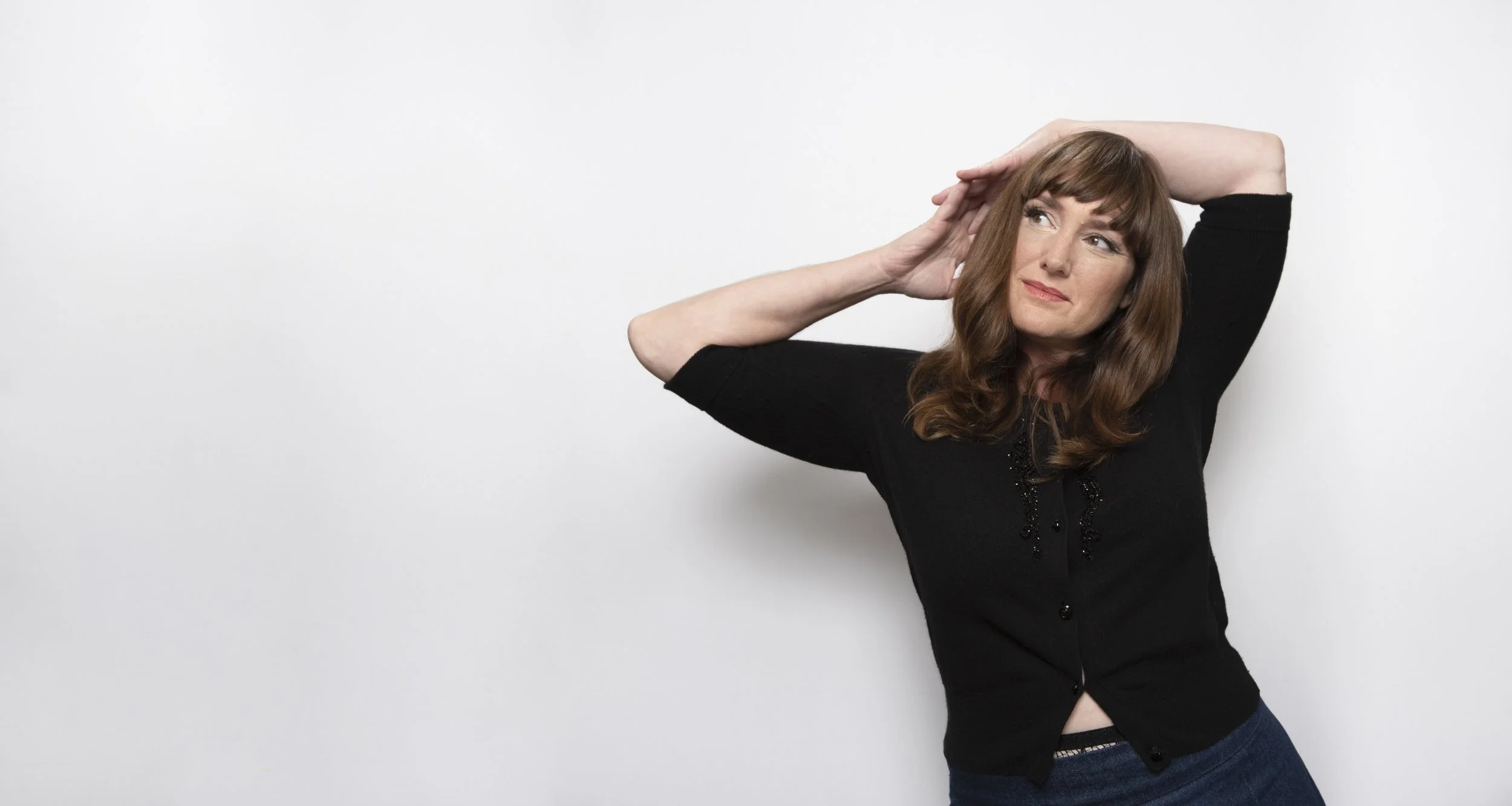Suzie Ungerleider evolves beyond her “creaky old whisky-soaked” Americana roots, at the Vancouver Folk Music Festival
Former Oh Susannah singer-songwriter no longer sets foot onstage intent on slaying dragons
Vancouver’s Suzie Ungerleider.
At the Vancouver Folk Music Festival, Suzie Ungerleider appears on July 21 at 3:50 pm on the East Stage; she will also participate in Rise Up and Sing (hosted by Dawn Pemberton) on the South Stage at 10 am
AS ALBUM TITLES go, they don’t get much more straightforward than My Name Is Suzie Ungerleider.
Prosaic as it might seem, though, that title is an important statement for the Vancouver-based singer-songwriter, who began her career in the 1990s under the stage name Oh Susanna. Borrowed from the song by Stephen Foster—the 19th-century lyricist and composer behind “Camptown Races” and “My Old Kentucky Home”—the moniker fit Ungerleider’s old-weird-Americana aesthetic at the time.
“I used to express myself kind of as a character, using narratives that might not be true—or might be true but fictionalized and heightened in this creaky old whisky-soaked drama,” she tells Stir. “But then I stopped doing that, and so it felt really weird to be using that name. I was passionate about old American folk traditions. I still am, but it’s not really where I’m seeking inspiration.”
Ungerleider had another, arguably even more compelling reason to revert to her birth name. When Foster published “Oh! Susanna” in 1848, chattel slavery was still legal in the United States, and the song’s appallingly vicious original lyrics contain dehumanizing references to Black people.
“It kind of makes a joke out of the suffering of people of colour, so that really was the nail in the coffin, so to speak, where I felt like I didn’t want to bring that history to the fore,” Ungerleider says. “It wasn’t really what I had intended anyway, ever, but I felt like it was turning my stomach to be hinting at any of that history.”
Not that the artist formerly known as Oh Susanna was averse to exploring dark subjects. Her self-titled 1997 EP is populated with desperate characters straight out of a Dust Bowl fever dream, whose choices are limited to hopping boxcars or heeding the call of the deathyard.
The title track of the first Oh Susanna full-length, 1999’s Johnstown, was a blood-soaked tale of sin and retribution set against the backdrop of the Johnstown, Pennsylvania Great Flood of 1889. (Or maybe it was the 1936 flood, or the 1977 one; the Conemaugh River is notoriously unruly.)
These days, Ungerleider is less inclined toward such melodrama and more likely to tap into her own experiences for lyrical inspiration.
Of this evolution, she says, “It was me embracing my own stories, and embracing Canadian stories, I guess, whereas before, when I first started, I really identified with the American part of myself, because I was born there. And I romanticized that landscape. And then of course as American politics got weirder and weirder, I realized that I am really much more Canadian.”
Her sound changed, too. Early on, Oh Susanna delivered her songs in a yodel-inflected twang that, while always tuneful, was unvarnished and uncompromising, like a grunge-era Hazel Dickens or a riot-grrl Maybelle Carter. Ungerleider says it was intentionally confrontational, a style initially shaped by her own anxiety.
“I was terrified of singing in front of people,” she recalls, “and maybe the only way I could do it was to be really loud and kind of slay the dragon of the audience, which is how I saw it: ‘People are gonna eat me up and they’re gonna criticize me, and I’m going to just be tough and sing really loud and really raw.’ Then when I got more comfortable, I could be more vulnerable and explore introverted ways of singing—and maybe make it more beautiful instead of just edgy.”
Fans who have followed Ungerleider through all the various phases of her musical metamorphosis will be rewarded when she performs at the Vancouver Folk Music Festival this weekend.
“I’m going to try to play some new songs, because I am making a new album, and it’s always fun to try out those songs,” she says. “Sometimes I do play certain songs that are from way back, from Johnstown or Sleepy Little Sailor—and in between, actually.”
Accompanying Ungerleider will be drummer Cam Giroux (who also happens to be her husband), bassist Jeremy Holmes, and hotshot guitarist-about-town Paul Pigat.
(It will be a busy Folk Fest weekend for the in-demand Pigat, actually. The nimble-fingered six-stringer will also be co-hosting something called Guitar Mayhem on the fest’s West Stage on the Saturday, and playing with New York-based Americana trio Big Lazy on the Sunday at the South Stage.)
The festival is a hometown gig for Ungerleider, who, after living in Toronto for several years, moved back to Vancouver in 2019 with Giroux and their child.
“At one point in my life I really wanted to get away and leave and explore and become something other than who I was in Vancouver,” she says. “So I left for a few decades, and then I started to realize that, no, I need to kind of integrate who I was before with who I became. I now can come back and feel like I’ve lived this life of adventure elsewhere. I don’t need Vancouver to entertain me the way that I did when I was younger, so now I can just be peaceful in nature.”
What better place to do that than Jericho Beach? ![]()














